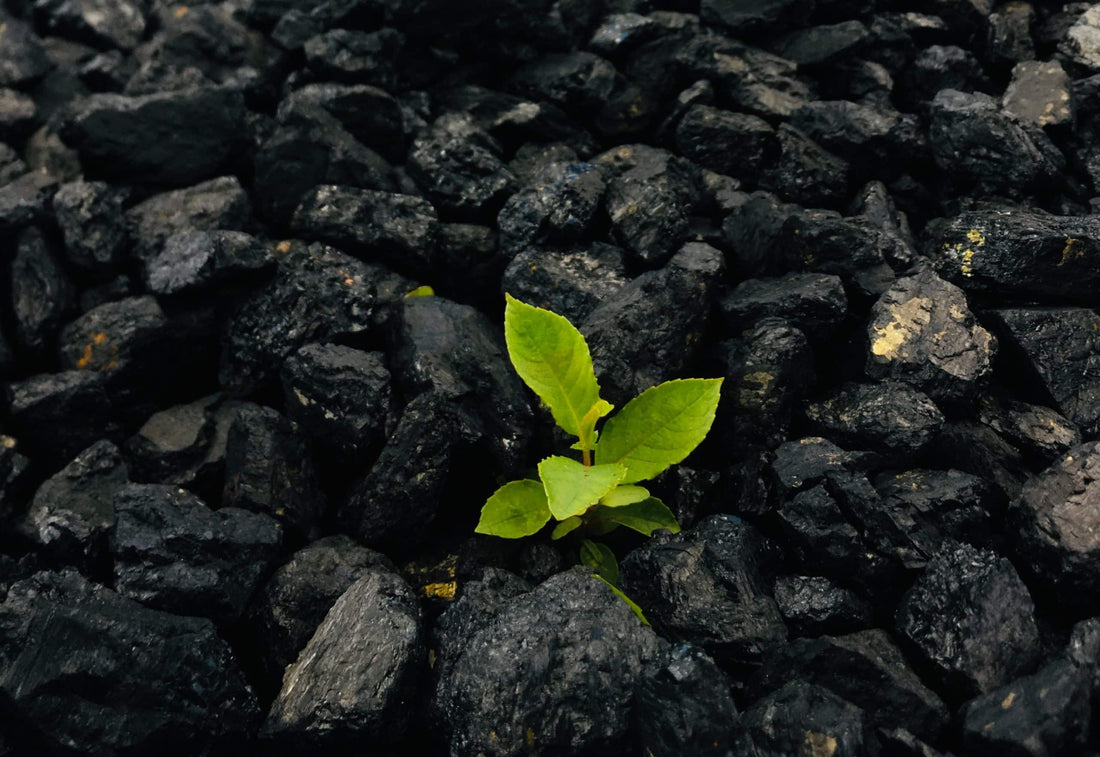
Biochar and its uses
Share
Biochar: A Powerful Tool for Soil and Climate
Biochar is a charcoal-like material produced by heating organic matter (biomass) in the absence of oxygen. This process, called pyrolysis, creates a stable and porous material with a range of beneficial properties for soil and the environment. Here's a closer look at biochar and its many uses:
Soil Superhero:

Biochar shines as a soil amendment, offering a multitude of benefits:
Improved Soil Fertility: Biochar's porous structure acts like a sponge, retaining water and essential nutrients in the soil. This makes them more readily available for plants, potentially boosting crop yields.
Enhanced Soil Structure: Biochar improves soil aeration and drainage, creating a healthier environment for plant roots.
Reduced Nutrient Leaching: Biochar helps retain nutrients in the soil, preventing them from leaching away and potentially polluting waterways.
Increased Carbon Sequestration: Biochar stores carbon captured from the atmosphere during biomass production. This can help mitigate climate change by keeping carbon out of the air.
Beyond the Soil:
Biochar's potential extends beyond agriculture. Here are some additional applications:
Water Filtration: Biochar's ability to absorb contaminants can be utilized for water filtration, potentially improving water quality.
Waste Management: Biochar can be used to convert organic waste into a valuable resource, reducing landfill waste.
Renewable Energy Source: Biochar can be used as a fuel source for generating renewable energy.

Making the Most of Biochar:
The effectiveness of biochar depends on several factors, including:
Feedstock: The type of biomass used to produce biochar can influence its properties.
Production Temperature: Pyrolysis temperature affects the porosity and nutrient adsorption capacity of biochar.
Soil Conditions: The characteristics of the soil will influence how biochar interacts with it.
A Sustainable Future:Biochar presents a promising approach for sustainable agriculture and environmental management. By improving soil health, reducing reliance on chemical fertilizers, and capturing carbon, biochar can contribute to a more ecological future. As research continues to explore its full potential, biochar may become a valuable tool for a greener tomorrow.

Summary
Biochar, a charcoal-like material made from heating organic matter, acts as a soil superhero. Its porous structure improves soil fertility by retaining water and nutrients, enhances soil structure for better drainage, and reduces nutrient leaching. Biochar also helps fight climate change by storing carbon captured from the atmosphere. Beyond soil, biochar has potential uses in water filtration, waste management, and even renewable energy generation. The effectiveness of biochar depends on the source material, production temperature, and soil conditions. As research progresses, biochar holds promise for a more sustainable future in agriculture and environmental management.
